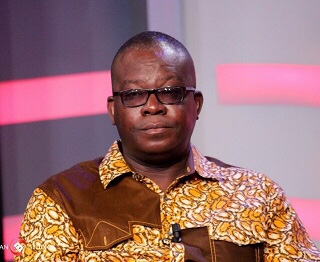Angel Cabornu, the President of the National Association of Graduate Teachers (NAGRAT), says the Association is indifferent about the High Court’s order for Achimota School to admit two Rastafarian boys who were denied admission into the school for refusing to cut their dreadlocks.
Mr. Cabornu, who was fully in support of the decision by the school to reject the boys, in an interview with Citi News said his outfit cannot be bothered about the repercussions of the court’s ruling, given that NAGRAT’s quest to reform students’ character through the enforcement of specific codes of conduct in various schools had been truncated by the court.
He intimated that the court’s order only means that students in various schools are at liberty to dress anyhow.
“What the judgement means is that the Rasta students and all other students can dress any way and go to school, and we teachers do not have to waste our time and energy talking about character formation. We thank the court for making our work easy.”
“Someone wears rasta, you should also be able to wear your cap or hat. We really do not care about that in anyway. We do not care about character formation because our professional understanding of character formation has been truncated by a court ruling and you want us to care. We are going to obey the court ruling” he said.
Mr. Carbonu had joined other groups and individuals in opposing the idea of admitting the two Rastafarian boys.
He had earlier suggested that Rastafarians should set up their own schools in Ghana if they want their children to keep their dreadlocks in Senior High Schools (SHS).
“I don’t even know why the Rastafarians don’t have their own schools, because they’ve been in this country [Ghana] for a very long time,” Mr Angel Carbonu had said earlier.
The Judgement
Delivering the judgment on the case of two Rastafarian boys, Justice Gifty Agyei Addo held that the Attorney-General failed to provide a legal justification as to why the rights of the two Rastafarian students to education should be limited on the basis of their dreadlocks.
Tyrone Marhguy and Oheneba Nkrabea were denied admission into Achimota School for refusing to shave off their dreadlocks notwithstanding that they had passed their qualifying examinations, and, had been selected into the school through the computerized placement system.
The school through the Attorney General argued in court that allowing the students into the school will have dire consequences on the school’s discipline, health, tradition, and community cohesion.
The Attorney General subsequently argued in Court that the Rastafarian students had not even completed or returned their acceptance of admission forms and could thus not be deemed to have been denied the admission.
But for the students, their parents, and lawyers, this was simply a case of a breach of fundamental rights on the basis of their religion and religious practices.
Justice Gifty Adjei Addo disagreed with the submissions of the Attorney and granted all the reliefs separately sought by the students, save for the relief of compensation in the case of Tyrone Marhguy.
According to Justice Addo, it is preposterous for the Attorney General to have even suggested that the two were not students in the first place.
Justice Gifty Adjei Addo consequently directed Achimota School to admit the two Rastafarian students.

















![EC Announces Elimination of Indelible Ink in Upcoming Elections [Video]](https://newsonghana.com/wp-content/uploads/2023/12/image-351-218x150.png)











































